In terms of musical festivities, there is nothing like The Festival of Music. Without a doubt, it is the place to be and the place to be seen.
Music festivals have their origins in the hippie era, but nowadays the best festivals in the world go far beyond the clichés of mud, acid, and rock music. Every year, these mostly massive gatherings grow in popularity, size, and scope. It could be said that they make up a large part of the social life of music lovers and of the atmosphere that can be felt there.

The Festivals
So much so that music festivals are unique places. Each one has its particularities — whether because of the place where they are held, the people who go to them, or the musicians who play. They never repeat themselves.
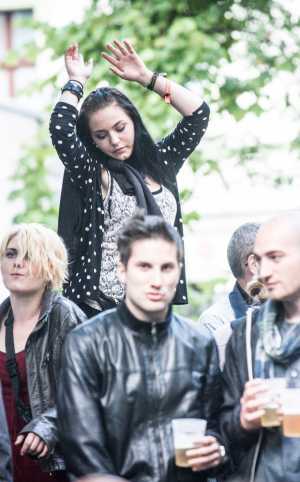
And, it’s simple: a music festival is what your grandparents criticize (they went once, but now they don’t see it as that interesting). In many cases, it’s the time of the year that parents fear, and it is a real representation of our generation’s effort toward social awareness.
In short, they are exceptional celebrations of love, happiness, fashion, camping, and massive confusion, together with the artists who come to define an entire generation of music.
Another of those wonders of festivals is that, for some reason, it seems that the best time to enjoy a music festival is, without a doubt, during the summer. Europe offers thousands of summer music festivals every year. However, The Festival of Music (*La Fête de la Musique*) is a festival celebrated all over the world.
The Festival of Music, also known as the Day of Music or *Fête de la Musique*, is an annual celebration of music that takes place on June 21st.
The best thing about it is the opportunity given to musicians to play freely in public spaces; the worst thing is that it lasts very little.
The concept of a 24-hour musical celebration, coinciding with the summer solstice, was created by the French Minister of Culture, Mr. Jack Lang.
Solkes: How long has The Festival of Music been celebrated in Berlin or Germany?
Simone Hofmann, Fête Company: The Festival of Music has been celebrated in Berlin since 1995, and it was the first German city to take part.
Solkes: How has it impacted the community?
Simone Hofmann, Fête Company: Today, in Berlin, the Festival of Music stands out in the summer cultural calendar. It spreads throughout the city with hundreds of stages and districts. It is organized by cafés, clubs, churches, neighborhood initiatives, youth centers, and schools. All kinds of music are represented, including classical, world, chanson, and jazz.
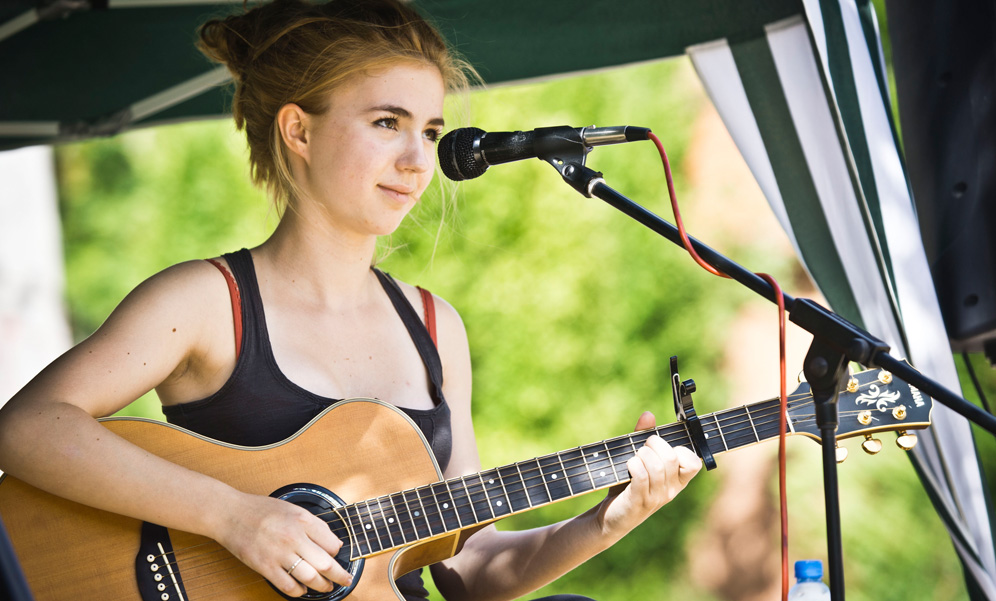
Music Everywhere
It all began two decades ago, in October 1981, when Mr. Maurice Fleuret became Director of Music and Dance and consequently decided to put his reflections into practice regarding musical life and its evolution: “music everywhere and concerts nowhere.”
Music unites us. It connects us in a magical way that makes it hard to imagine humanity existing without it.
A year later, in 1982, a study about the cultural habits of the French people was published. It revealed that five million people — one out of every two children — played a musical instrument. This was the true beginning of it all. Fleuret began dreaming of a way to bring people out into the streets.
From that moment on, the Festival of Music took on a life of its own and became an international singularity. In fact, it’s incredible — it is celebrated on the same day in more than 700 cities across 120 countries (Germany, Italy, Greece, Russia, Australia, Peru, Brazil, Ecuador, Mexico, Canada, the United States, and Japan, to name a few).
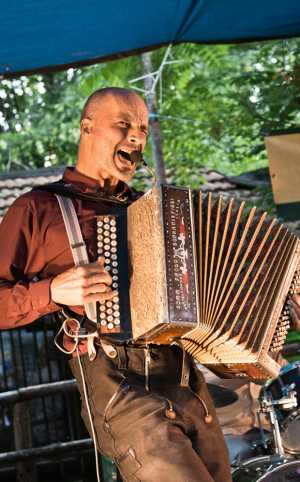
The purpose is to promote music in two basic ways. Both amateur and professional musicians are encouraged to play in the streets and offer free concerts, thus making all musical genres accessible to everyone.
For this street music spectacle, preparations develop quite quickly. As always, the results exceed all expectations. It is the day of the summer solstice, and loose, light, comfortable clothing is part of the scene.
It is obvious that on that day, the shaded areas are limited. Thousands of initiatives take place throughout France and in other countries.
Musicians set up everywhere — in streets, public gardens, bandstands, parks, stations, and plazas, among other places.
In the German Capital
Solkes: How has the Berlin audience reacted?
Simone Hofmann, Fête Company: The public loves the Festival of Music, and hundreds of thousands of people wander through the streets celebrating music, even if it rains. It’s like New Year’s Eve in the summer.
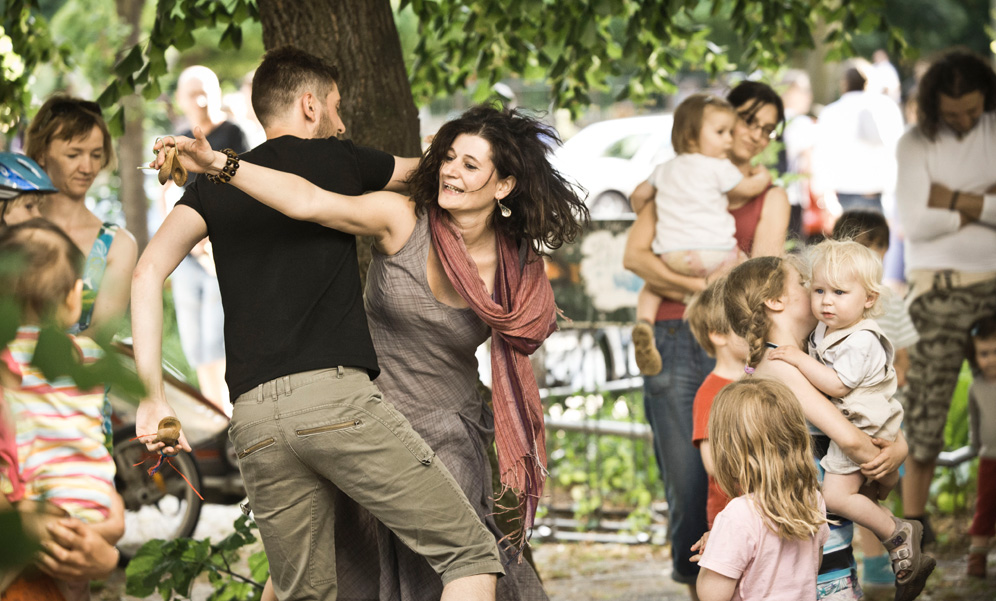
Solkes: In what way will the Festival of Music evolve?
Simone Hofmann, Fête Company: Fête de la Musique Berlin is entirely funded by the public sector — 75% by the Stiftung Deutsche Klassenlotterie Berlin — and its support continues until 2017.
The Festival of Music is a brand, a trend, and a movement that continues to cause a sensation internationally. Everyone wants to go, everyone talks about it. The best part is that it’s completely free — anyone who wants to enjoy it just needs to go out into the street.
Entire families, music lovers, couples, grandparents — everyone is welcome. The streets overflow with good vibes, food, and, above all, unity through music.
The Power of Music
Music is something magical. It is a remedy for all the emotional wounds of life. The craziest thing about music is that there are so many types that there is literally something for every imaginable taste.
It is music for the people and with the people.
There is music to calm yourself, music that takes you to an unearthly state, music to get excited and lose control, and music that simply serves to take away the silence.
Everyone has a favorite song or artist. So it’s no surprise that liking the same music can be both a conversation topic and a tool for connection. Moreover, a person’s personality can be determined by the type of music that surrounds them.
This is something worthwhile, something not to be taken lightly. There are classical people, artistic/indie people, rockers, alternative ones, and country-style people. There are so many things in the world that were born from or influenced by music that, for many, it can be as controversial a topic as politics or religion. Music means something different to everyone.
The Festival of Music
In 2014, more than 120 countries around the world participated in **The Festival of Music**. The Fête de la Musique is also a carrier of new musical trends: the revival of traditional music, the explosion of world music, the development of choirs, and the rise of rap and techno, among others.

The Festival of Music naturally promotes visibility and access to artistic and cultural practices, and every year it demonstrates its ability to evolve and endure.
Solkes: Could you tell me some of your best memories of the Festival of Music?
Simone Hofmann, Fête Company: A sunny summer day with people walking and enjoying the music. The concerts of popular groups like Element of Crime or Bonaparte cause traffic jams. Savignyplatz is closed because people are dancing in the street in front of Café Brel.
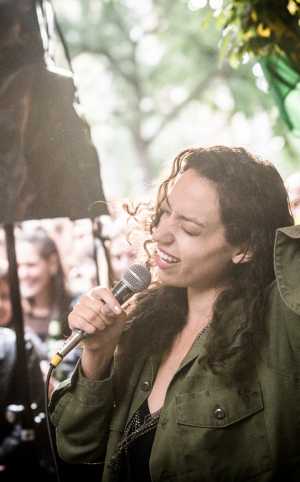
Solkes: If someone is reading this and has never visited Berlin or the Festival of Music, what would you tell them?
Simone Hofmann, Fête Company: Join the party! The Festival of Music is the best opportunity to explore the city and see it in all its facets.
Something surprising is that thanks to the variety of musical genres, it’s possible to see artists in a more intimate and personal way. Just last year, hundreds of musicians and music lovers celebrated this festivity. Every year on June 21st, soloists and groups take to the streets to play live.
A whole day full of live music of all genres and for all tastes sounds like heaven. Bands, orchestras, choirs, soloists, and DJs perform in public spaces, creating happiness and a pleasant atmosphere for everyone.
Ending with Good Music
Many people decided to go out and play an instrument for the first time; they found a community they never imagined existed. It is a day of celebration, and it is the longest day of the year.
The festival was born from a humble explosion of musical idealism and a few connections. However, in just two decades, it has become a very popular global event.
In terms of musical festivities, there is nothing like **The Festival of Music**. Without a doubt, it is the place to be and the place to be seen. It is an almost perfect, sublime union. It is a place where you can dress how you want, do what you want, and, ultimately, be who you want to be.


